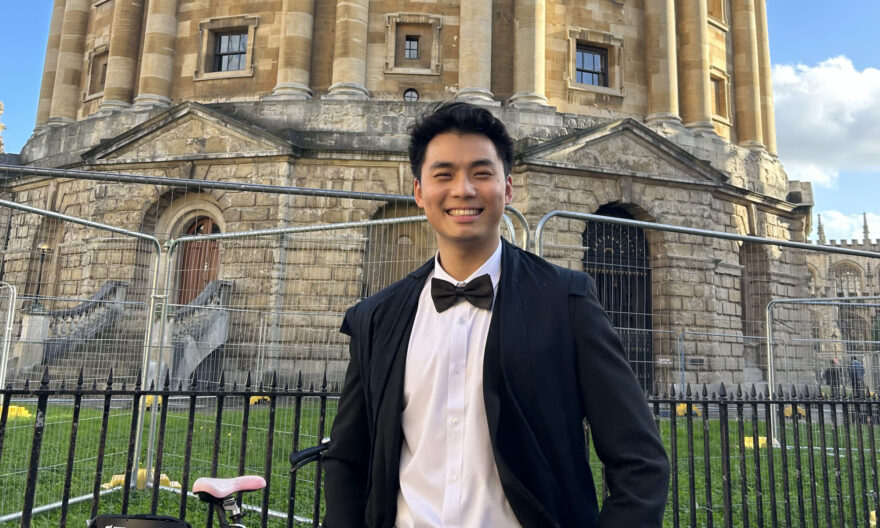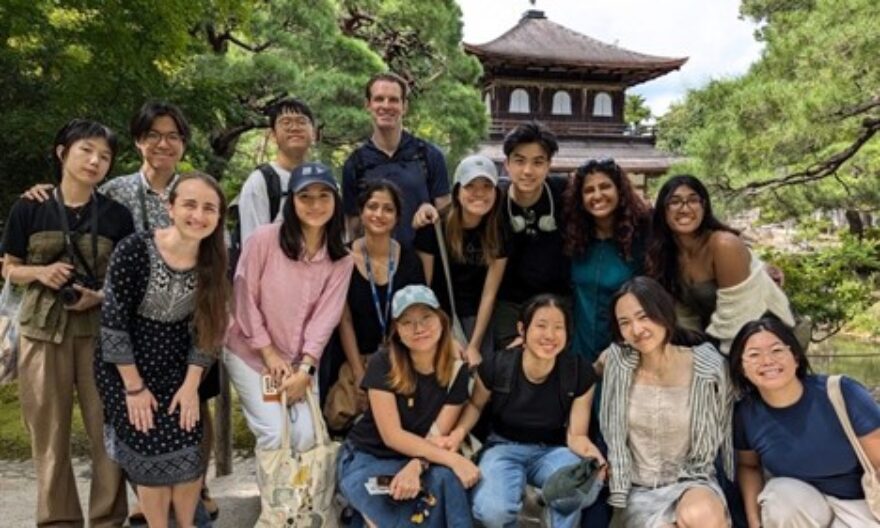Promoting learning through podcasting: How Assistant Professor Malcolm Keating makes philosophy accessible to a wide audience
 Image provided by Assistant Professor of Humanities (Philosophy) Malcolm Keating.
Image provided by Assistant Professor of Humanities (Philosophy) Malcolm Keating.
In hosting his podcast, Sutras (and stuff), on Indian and other South Asian philosophy, Yale-NUS College Assistant Professor of Humanities (Philosophy) Malcolm Keating shows us the versatility of podcasts as a medium to transmit knowledge.
Among many mediums to choose from, including social media or more traditional newsletters, Asst Prof Keating chose podcasts in order to combine the conciseness of social media posts with the depth and nuance of textual content.
“I chose podcasting as a way to reach people who might not otherwise pick up an academic book on Indian philosophy,” he explained.
Sutras (and stuff) is not his first venture into podcasting. He previously hosted podcasts for New Books Network, a podcasting website, before deciding to host his own show.
Asst Prof Keating’s choice of medium was directly inspired by a genre in Indian philosophy, the sūtra. Explaining the sūtra’s similarities with modern-day social media, Asst Prof Keating said, “Social media platforms like Twitter have a lot in common with a genre that Indian philosophers wrote in, called the sūtra, which means “thread.” They used short statements as a way to make complex and very comprehensive philosophical systems memorisable.”
Inspired by the sūtra, he also decided to keep his podcast episodes (which, for many podcasts, can run to over an hour) concise. “I made Sutras (and stuff) short on purpose – about 15 minutes – to just give people a bite-size idea and show how it’s related to contemporary topics.”
Asst Prof Keating’s pursuit of philosophy started early in his tertiary education. Having studied literature and Spanish in his undergraduate years, he became interested in the field while studying textual interpretation through a philosophical angle.
He discovered his passion for Indian philosophy, specifically in so-called orthoprax Indian traditions, during his postgraduate studies. “During my master’s degree in philosophy I took a course in Indian philosophy which got me hooked,” he said. “Indian intellectual traditions have a lot to say about the conditions under which language should be understood.”
More recently, he has been studying the intersection between these two areas, and what Indian philosophy has to say about the relationship between how we use language and how we reason together through argument and debate. “I’ve started to think about how we can know ourselves and our community through debate and discussion. This is another area that Indian philosophers have been working on for a long time, which keeps sight of the practical and existential import of these topics.”
Sutras (and stuff) is a culmination of the intersection between language, in its many forms, and philosophy. This has allowed him to use his podcast to supplement teaching and meet experts in various fields, such as neuroscience or Buddhism, as guests on his show.
However, the knowledge gained from Sutras (and stuff) reaches beyond the four walls of his classroom, and even Singapore. “I hear from people around the world who have managed to find my podcast, and they either get interested in new parts of Indian philosophy or they learn about it for the first time,” he said.
His mission, after all, is to make Indian philosophy accessible for a large modern-day audience. Elaborating on this commitment to education, he said, “This podcast is just one way to give people a window into this history, which is much more than just yoga and meditation, and which gives those practices a more robust context.”
Despite facing some setbacks at the start of the COVID-19 pandemic, Sutras (and stuff) has successfully completed two seasons. Asst Prof Keating has plans for a third, focusing on the philosophy of language.
Sharing his aspirations for the next iteration of the podcast, he said, “I hope to share both how the philosophy of language is relevant to ordinary life, and exciting—not dry and abstract—as well as how much Indian philosophers have to say on a wide range of linguistic topics.”
Listen to the latest podcast episode here!




